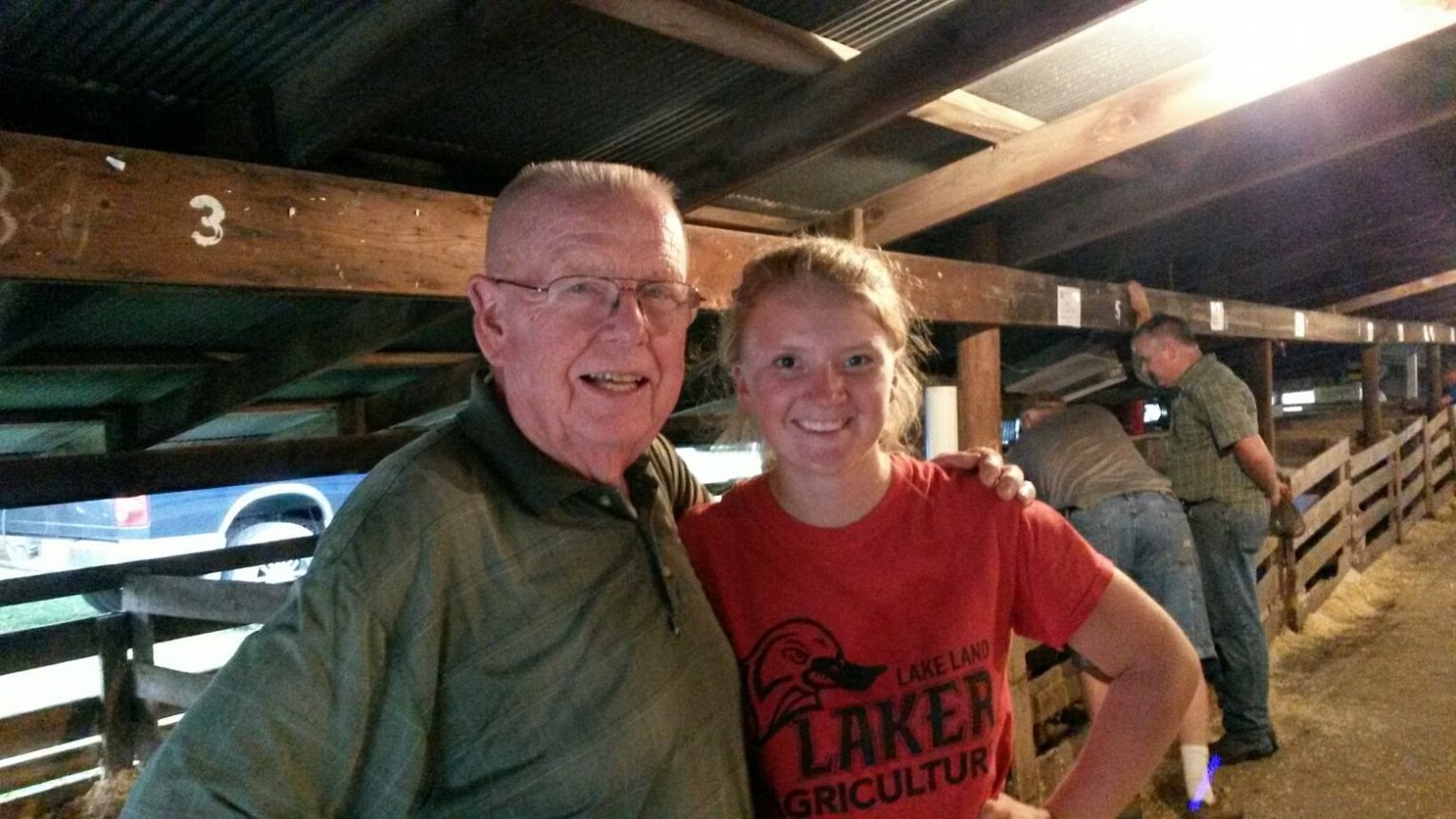Inspired to lead, called to serve

As a kid growing up in Illinois, I was heavily involved in 4-H for 11 years, taking projects like swine, horticulture, photography, and cooking. I think my favorite part of 4-H was not showing projects at the fair, or monthly club meetings, or the skills it taught me, or even working with livestock, although I really enjoyed all those things. My favorite part of 4-H was the community. That may sound cheesy, but it’s so true. One of my favorite days of the whole year was fair clean-up day when everyone came together after the fair to scoop out the barns and clean up the buildings. Even though it was hard work and everyone was exhausted after a week at the fair, I thought it was really cool to be part of this big group all pitching in to help.
It’s hard to talk about my 4-H experience without talking about all the connections I made, which is true for so many 4-H alumni. I think this is such a common theme because there is something about working with and beside people that helps you bond in ways you wouldn’t otherwise. I made a lot of friends in 4-H (actually, I’m engaged to one of my friends I met in 4-H!), but it also helped me connect more deeply with people in my own family. I grew much closer to my grandpa and my cousins by working on 4-H projects together. My grandpa has always been crazy about raising hogs and he would take me to buy 4-H pigs and help me with the chores along the way. Before moving to college, I also got to spend a lot of time with my younger cousins in the summer as we all worked on our livestock projects. Working on projects and practicing the 4-H commitment to community service were an important part of these friendships and family relationships.
Opportunities for community service are everywhere in 4-H. I really enjoyed working with the younger 4-H members, packing meals for local food pantries, and serving community dinners. I think these experiences taught me that the relationships I gained are so much more valuable than the skills I learned or the recognition I received. I didn’t win many awards, but I can’t remember a single time when I didn’t enjoy the fair because I didn’t win. It was the shared experiences and the group commitment to serving where out community needed us that stand out in my memories of my days in 4-H.
Now that I’m at the University of Illinois, I sometimes have to work a little harder to find that same sense of community. The campus is so huge and sometimes there are so many different people from so many different backgrounds that it is difficult to find common ground you can relate to. Sometimes I feel like I am in the middle of an ideological and political battle ground. One of the 4-H lessons I lean on as I’m navigating my way through college is the idea that it’s okay to disagree with an idea and still care about the person who had that idea. That doesn’t mean that you compromise your beliefs, it means that you lead by caring about other people rather than by winning arguments. Just like in 4-H, the relationships are more important than the wins.
If there is one take-away from my years in 4-H that I still carry with me, it’s this: some of the best leaders don’t always look like leaders. They are the people who get their hands dirty, work hard, and set an example. 4-H Fair clean-up day was about cleaning up the debris left behind after the county fair was over, but it was also about learning to serve even when you’re tired and want to rest. It was about joining together with a group of people to make our community better, not because we had to but because we wanted to. 4-H shaped my view of a leader as someone who genuinely cares about improving their community and who believes that building relationships is important.